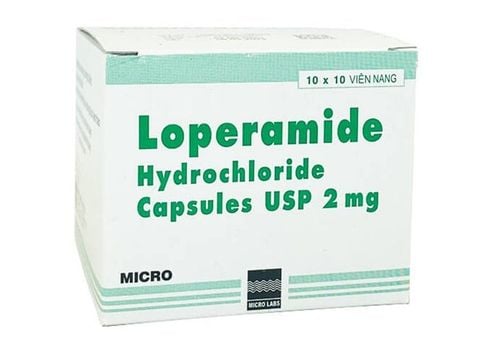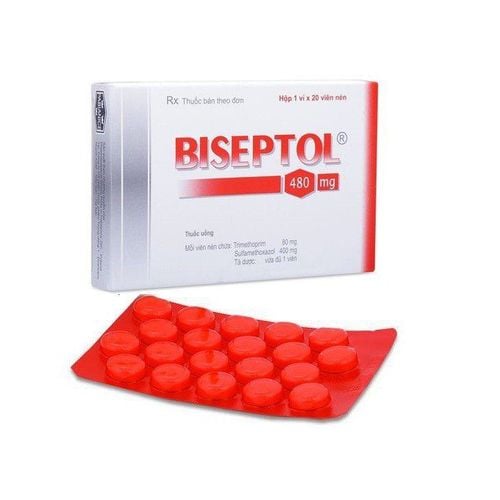This is an automatically translated article.
Diotame is used to treat stomach disorders, heartburn and nausea. In addition, it is also used to treat diarrhea and help prevent diarrhea. It works by slowing the growth of bacteria that can cause diarrhea.1. How to use Diotame Diotame should not be used to self-treat diarrhea if you also have a fever or bloody or mucousy stools. This could be a sign of something serious. Consult your doctor for proper evaluation and selection of appropriate treatment. Diotame is used as prescribed by your doctor, in combination with other medications, to treat stomach ulcers caused by certain bacteria. Do not use this medicine to self-treat ulcers. Salicylates can cause serious bleeding problems when used in patients with stomach ulcers. Therefore, check the ingredients on the label even if you have used the product before, because the composition of the medicine may have been changed. In addition, products with similar names may contain different ingredients with different purposes. Using the wrong product can be harmful to your health.
Take diotame by mouth by mouth, usually as needed, as directed on the product packaging or as directed by your doctor. Determining the dose of a drug is based on factors such as: age, medical condition and response to treatment. Do not increase your dose or take this medication more often than directed by your doctor. Use the medicine exactly as recommended for your age. There are many brands and forms of bismuth subsalicylate available. Read the dosing instructions for each product carefully as dosing instructions can vary from product to product.
Chew each tablet thoroughly and swallow if you are taking the tablet. If you are using liquid medicine, shake the bottle well before each dose. Measure the dose carefully with the special measuring device/cup to determine the correct dose.
Diotame may react with other drugs (such as tetracycline antibiotics, chloroquine), preventing the body from absorbing the drug completely. Talk to your doctor about timing your medications to prevent this problem.
If your doctor has directed you to take this medicine every day, use diotame regularly for maximum effect.
If the condition does not improve, tell the doctor.
Tell your doctor if diarrhea persists for more than 2 days while you are taking this medicine.
2. Side effects Diotame rarely causes side effects. The most common sign after you use the medicine is dark colored stools/tongue. When the medication is stopped, these effects are harmless and should go away.
Continuous vomiting/diarrhea can cause severe dehydration. If you experience any symptoms of dehydration, such as unusual decreased urination, unusually dry mouth/thirst, heart palpitations, or dizziness/lightheadedness, tell your doctor right away.
If you experience symptoms such as: Tinnitus, hearing loss, contact your doctor.
Diotame can sometimes cause serious (rarely fatal) bleeding in the stomach or intestines. If you notice any of the following signs, stop taking this medicine and consult your doctor immediately: Vomiting that looks like coffee grounds, black/tarry/bloody stools, stomach pain, persistent abdominal pain.
Diotame rarely causes serious allergic reactions. However, seek immediate medical attention if you notice any of these symptoms, including: Rash, itching/swelling (especially of the face/tongue/throat), feeling short of breath, dizzy.
The following conditions are contraindicated with Diotame, including
Diabetes Gout Coagulation disorders that pose a risk of bleeding Decreased kidney function Women who are pregnant and breastfeeding Allergies:
Salicylate NSAID (Non-Steroidal Anti-Inflammatory Drug) Bismuth contains compounds

Thuốc diotame có thể gây ra một số tác dụng phụ không mong muốn
If you notice any unusual symptoms after taking diotame, contact your doctor immediately.
3. Precautions Before taking bismuth subsalicylate, tell your doctor if you are allergic to it, or if you are allergic to aspirin, to salicylates (such as salsalate), or to NSAIDs, or any other allergic reaction. This product may contain inactive ingredients, so diotame may cause allergic reactions or other problems.
This is a medicine that should not be used if you have a certain problem. Before using this medication, consult your doctor or pharmacist if you have bleeding problems (such as hemophilia), bloody/black/tarry stools.
Consult your doctor before using diotame to treat gout.
This medicine may contain aspartame. If you have phenylketonuria (PKU) or any other condition that requires limiting your consumption of aspartame (or phenyllalanin), consult your doctor about using it safely.
Your doctor needs to be informed about all the medicines you are taking, including prescription and over-the-counter medicines.
Diotame contains an aspirin-like ingredient (salicylate). Children and adolescents should not take this product if they have chickenpox, flu, or any undiagnosed illness, or if you have recently been vaccinated. In these cases, taking aspirin or aspirin-like products increases the risk of Reye's syndrome, a rare but serious illness.
During the first 6 months of pregnancy, this medicine should only be used when clearly needed because it contains salicylate. Diotame is not recommended for use in the third trimester of pregnancy due to possible harm to the fetus and interference with labor.
Lactating women only use diotame when prescribed by a doctor.
4. Interactions Before checking with your doctor, do not start, stop or change the dosage of any medication on your own.
Before using diotame, tell your doctor about all prescription and nonprescription/herbal products you may use, including: valproic acid, carbonic anhydrase inhibitors (such as acetazolamide) , corticosteroids (such as prednisone), dichlorphenamide, methotrexate.
This medicine may increase the risk of bleeding when taken with other medicines that can also cause bleeding, such as: Antiplatelet drugs such as clopidogrel, blood thinners such as dabigatran/enoxaparin/warfarin .
Check the labels of all prescription and nonprescription medicines carefully as many contain pain relievers/fever reducers (NSAIDs such as aspirin, ibuprofen, naproxen) that are similar to this drug and, if taken together, may increase risk of side effects. For specific medical reasons such as heart attack or stroke prevention, which your doctor prescribes, usually at a dose (81-325 milligrams per day) you should continue to take low-dose aspirin.
Diotame may interfere with certain radiological tests (contrast X-ray of the intestine), possibly causing false test results.
This document does not contain all possible interactions during your use of the drug. Therefore, before using this product, tell your doctor about all the products you use.
If you overdose on diotame and experience serious symptoms such as fainting or difficulty breathing, call 911 right away. Symptoms of a diotame overdose include: Tinnitus, hearing loss.

Thuốc diotame có thể tương tác với một số loại thuốc khi kết hợp với nhau
If your doctor prescribes this medicine for you, do not share it with others.
If you are taking this medicine for diarrhea, drink plenty of fluids to reduce your risk of becoming severely dehydrated.
If you forget to take your medicine, take it as soon as you remember.
The drug should be stored at room temperature between 20-25 degrees Celsius, protected from light and moisture. Do not store medicine in the bathroom.
Different products may have different ways of storing medicines. Therefore, read the drug storage information printed on the product packaging and consult your doctor's instructions.
When the medicine has expired or is no longer in use, dispose of it appropriately.
Please dial HOTLINE for more information or register for an appointment HERE. Download MyVinmec app to make appointments faster and to manage your bookings easily.
Reference source: webmd.com












